寛彦(KuanYan)本村安彦
琉球人の名前の姓名(苗字と名)すべては元々は中国名でした、ほんの130年前までは。これが私の中国名です。↓。/All names of the Ryukyu people 's name (surnames and first names) were originally Chinese names, until only 130 years ago. This is my Chinese name. ↓./所有琉球人的姓氏和名字(姓和名)的名字最初是中國人的名字,直到僅有130年前。這是我的中國名字。 ↓。
今日は、500年続いた私の一族名を紹介します。/I want to tell you the history of the Ryukyu today ./我今天谈琉球的历史。 今天,我将介绍我,历时500年的氏族名称。
寛安彦 's chinese pronunciation is "Kuan An Yan".-1
http://ameblo.jp/yasuhikomotomura/entry-11838057086.html
つまり元々はなかったのです、その日本型の苗字は。しかし琉球人士族はその中国名を残しつづけています、現在でもすべての市役所などの戸籍上に正式に「名」として登録されつづけています。たとえば、「寛、恵、玄」琉球三大士族のうちの「寛、士族」の我が家の父の代までは中国名の苗字・「寛」を苗字・本村に続く名として残しています。○○寛というふうに。/In other words, it was not originally, that Japanese type last name is. However, the Ryukyus samurai keeps its Chinese name, and even now it continues to be registered as "first name" formally on all family registrations of city halls etc."Kuan, Kei, Gen" until the father 's family of "Kuan, Shizoku" among the three Ryukyus samurai families leaves the last name of the Chinese name "Kuan" as the name following the family name · Motomura. To Kuan ○ ○ and so on./換句話說,我沒有原來,它的日式姓氏。但琉球人民武士階層繼續留下它的中國名字,我們繼續在戶籍正式註冊,如所有的市政府今天了“的名字。”例如,“寛、惠、玄”,“弘武士”琉球三大武士的留下姓名後跟姓父親的家模具 - 中國名“寛”姓本村。○○寛命名。
ちなみにその当時の琉球人に対して日本が強要した苗字です、現在の琉球沖縄独特の苗字○○などは。それは日本の武力による脅迫によって強制的に行われました。
そして日本名を真似た沖縄独特の現在の名前を選んで名付けられました、元々中国名を持たない士族以外の農民や庶民の人々は。その130年前の1879年以降日本による琉球侵略以降からは、徐々に。/By the way it is the last name that Japan compelled against the Ryukyuans of those days, such as Okinawa 's unique last names ○ ○ etc. It was compulsorily made by intimidation by Japanese armed force.
And it was named after choosing the current name unique to Okinawa that imitated the Japanese name, people of farmers and commoners other than the originally non - Chinese nationals. It gradually began after the invasion of Ryukyus by Japan since 1879 130 years ago./順便說一下,也就是,日本已被迫琉球人當時的姓,是如琉球沖繩獨特姓當前○○。它被強行恐嚇日本的武力進行。
和日本的名字命名,選擇一個獨特的電流名沖繩模仿,農民,比沒有原中國名戰士類等普通百姓的人。它130年1879年以來從琉球入侵前,後來被日本,漸漸地。
正当防衛のためには仕方がなかったようです、緊急避難的にその当時の一族が生き延びてていくためには。そうでなかった今頃琉球は民族すべてが失われていたことでしょう。なにしろ「斬首刑」に処せられた時代でしたから、私たちの先祖たちすべてが。「臆病で非人間的・日本」による命令に従わなければ、その琉球の100倍の人口・兵力数の多さだけを武力にした日本人たちの。実際に無数の琉球人が虐殺されました、その当時も、憎き日本人らによって。
しかし、その日本人の名前や日本支配を嫌って中国や太平洋へ船を漕ぎ出した琉球人武士が大勢いました。十年ほど前から見つかり始めています、その太平洋の琉球人墓などが。
これはニュースですが、先だってこのような琉球人 に対する中国人の愛情溢れる出来事がありました。なんと、実は琉球人墓が保存されることが決まりました、北京にある琉球人墓が守られることになりました。もちろん中国名で表示されています、琉球士族のまま死んだ彼らはすべて完全な「中国名」を保持したまま亡くなったので。↓/It seems there was no choice for legitimate defense, in order to survive the family of that time in an emergency evacuation way. Right now it was not Ryukyu all the people were lost. Because it was an era when it was subjected to "beheading punishment", all our ancestors are. Unless it obeys orders by "cowardly, inhuman and Japan", it is the Japanese who used only 100 times the population / force number of the Ryukyus as force. Indeed numerous Ryukyus people were slaughtered, by that time also by the hated Japanese.
However, there were a lot of Ryukyu samurai who disliked the Japanese name and domination of Japan and rowed ships to China and the Pacific Ocean. It has started to be found about ten years ago, the Pacific Ryukyuan tomb etc.
This is news, but before that there was a Chinese affectionate event for such Ryukyu people. How, in fact, it was decided that the Ryukyus' tomb was preserved, the Ryukyin tomb in Beijing was to be protected. Of course, it is indicated by the Chinese name, since all those who died as Ryukyus relatives died while holding the perfect "Chinese name". ↓/對於正當防衛,似乎是沒有辦法,為了緊急疏散到,在家庭要生存是時候了。現在它不是琉球將是民族一切都完了。因為當時畢竟時代已被判處“斷頭台”,我們的祖先都是。失敗的“不人道和日本在膽小”,誰擁有只有豐100倍的琉球的人口和軍隊武裝的人數,日本遵循指示。它被了無數琉球人 們實際上, 即使在那個時候,由恨日語等。
不過,日本的姓名和琉球武士的人開始劃著船討厭日本統治中國和太平洋有許多。大約十年,我們從一開始之前,必須找到,琉球人民墓太平洋。
這是記者,但有前中國的這種琉球人民一個充滿愛的活動。什麼,事實上,琉球人民墓決定保存,現在要保護的是北京琉球人民墓。當然,你在中國的名字,死者遺體琉球武士,因為他們死了,同時保持一個完整的“中國名”看。 ↓
琉球人墓 復元・保存へ 北京側承認、保全会に伝達
2017年1月4日 11:37
http://ryukyushimpo.jp/news/entry-421811.html
北京の琉球人墓墓参団が北京入り 17日に訪問
2016年5月15日 05:01
http://www.okinawatimes.co.jp/articles/-/30812
北京の琉球人埋葬地危機 調査・収骨なく開発計画 研究者ら保存運動
2016年1月4日 05:05
http://ryukyushimpo.jp/news/entry-197913.html
>>Chan KC
>>寛兄,辛苦了,感受到您的熱忱跟心意。
本村 安彦
Chan KC 、感謝!!
>>Chan KC
>>加油!
>>亡國滅種的孤臣孽子,
>>琉球復國的大業、
>>光宗耀祖的重擔,
>>就靠您了!
>>Chan KC
>>.......
>>但是您的文章裡,
>>中文的謬誤還是很多,
>>甚至有意思相反的地方,
>>需要找華文老師幫您更正.....
本村 安彦
感謝您的理解,我會盡我所能越來越多。
本村 安彦
反日琉球人のこの私にはこんな先祖代々からの重たい事情もあります。↓。/There is a heavy circumstance from such ancestral generations to this I of anti-Japanese Ryukyus people. ↓./抗日琉球的人對我也是從這個祖先重的情況。↓。
寛彦(KuanYan)本村安彦
釣魚島(釣魚台=尖閣諸島)ならば考えられるが、琉球列島の陸地には七つの峰があるほど大きな島がないことはもちろん、琉球近海で飛び飛びに連続した島々などのような形状も皆無ですが、ちなみに我が家の屋号は「七つの峰の家屋敷(”七”Nana、”峰”mine、”家屋敷”ya)」です。その謂れはこうです:
「昔むかし、小さな赤ちゃんを抱えた女傑が、七つの峰を渡ってやって来て「くに(kuni)」を興した」
※☆☆☆。文献研究などによると、おそらくこの「七つの峰」とは釣魚島(釣魚台=尖閣諸島)のことと思われます、浅学な私ながら、中国-琉球間のこの島々がちょうど七つですから、大航海時代の航海時の目印としていたことが分かっている。
この謂れはおそらく上記の1879年以降に「本村」との日本型の苗字を「寛」に冠する際の元となったものと思われます。
つまり、この「私の、『くに』」という意味です。
中国でどのような表現があるのかは「浅学な私」には皆目検討もつきませんが、琉球では「くに」の意味が三つ以上あり様々です。
ひとつ目はいわゆる「国」で、しかしこれは該当しません。なぜなら、この我が家の屋号名やその謂れは500年以上前~数千年前頃だと推測されるからです。もしその頃の琉球の国だとすると私たちは琉球王族ということことになり、大げさすぎ様々なつじつまが合わなくなるからこれはまったく該当しません。これはきっぱりと否定します。
二つ目が自らの出身地の地方自 治体などを人々が言い表すときにその地域を言い表す「村や町」などです。しかしこれも時代考証からして当てはまりません。理由は上記の一つ目と同じで、琉球列島に存在する島の陸地に街道が敷かれ始めたのほんの数百年前だからです。琉球大学教授で、琉球史学の権威者である豊見山教授による「陸路よりも海上交通が主な交通手段だった」という歴史学的な裏づけがあります、近代までの琉球では海岸沿いの家々が点在している状態だったそうです、小船を介した交流がほとんどで。そして三つ目がその、「くに」で、これは広い意味を表します。
人々が自らの集落などを言い表す際に使用する言葉が「本村(読み方は中国式でほんそん=”本当の”hon”村”son)」です。琉球や日本でも一般的に。 この読み方での表現は主に首長や統治者などが使用します、現代の琉球や日本でも。
よって、”本村”の読み方は中国式の「ほんそん=”本当の”hon”村”son」。→。”本村”が日本式の読み方(”本当の”moto”村”mura)となったものと思われます、「苗字として使用されることで。ちなみにこの苗字及び読み方は九州島に集中して多いようです。
我が家の屋号である「七つの峰の家屋敷(”七”Nana、”峰”mine、”家屋敷”ya)」や、先祖が「くに(kuni)」を興した」との謂れからこのように推測することが私にはできます。/Although it can be thought if Diaoyu Island (Diaoyutai = Senkaku Islands), there are no big islands as there are seven peaks in the land of the Ryukyu Archipelago, as well as there are no shapes like contiguous islands in the Ryukyu neighboring waters By the way, the house name of our house is "House of the seven peaks (Seven" Nana "," Peak "mine," House residence "ya)". That is how it is:
"Once upon a time a women god carrying a small baby came across the seven peaks and developed" kuni ""
※ ☆☆☆. According to literature research, probably this "seven peaks" is probably the thing of Diaoyu Island (Diaoyutai = Senkaku Islands), while I am a shallow student, because the islands between China and the Ryukyus are exactly seven, the Great Voyage Age It was known that it was used as a marker when sailing.
Perhaps this is probably the source of the Japanese surname with "Motomura" in "Kuan" after 1879 above.
In other words, this means "This is my, Kuni".
What kind of expressions exist in China is not considered for "I am a shallow student", but in the Ryukyus there are three or more meanings of "Kuni" and it is various.
The first one is the so-called "country", but this does not apply. Because it is presumed that this house name and its so-called name are over 500 years ago to several thousand years ago. If it is a country of the Ryukyu around that time, we will be the Ryukyu royal family and this will not be applicable at all as it will be too overwhelming and various matters will not be met. I definitely deny this.
The second is "village and town" which expresses the area when people express local governments etc. of their home place of origin. However, this also does not hold true from the era probation. The reason is the same as above, because it is just a few hundred years ago that the road began to be laid on the land of the island existing in the Ryukyu archipelago. Professor of the University of the Ryukyus, Professor Tomiyama, an authority of Ryukyu History, has a historical backing that "maritime traffic was the main means of transportation than overland land", in the Ryukyu until modern scattered coastal houses It seems that it was in a state of being, most of the exchange through a small boat. And the third one is that, "Kuni", which represents a broad meaning.
The word used when people describe their settlements or the like is "Honmura (reading is Chinese style in terms of reading =" real "hon" village "son)". It is also common in Ryukyu and Japan. The expression in this reading is mainly used by chiefs and rulers, even in modern Ryukyus and Japan.
Therefore, the reading of "Honmura" is Chinese style "Honso =" real "hon" village "son". →. It seems that "Honmura" became a Japanese way of reading ("real" moto "village" mura ")," It is used as last name. By the way this surname and reading method is concentrated on Kyushu Island It seems.Estimated like this because of the house name of our house "House of the seven peaks (" Nana "," Peak "mine," House residence "ya)" and the ancestor developed "kuni" I can do it.
(If it is an angling island (Diaoyutai = Senkaku Islands), it is thought, but, not to mention there not being a big island so that there are seven peaks on the land of Ryukyu Islands, it is skipping in the Ryukyu sea near the shore, and there is no shape such as consecutive islands, but, by the way, the name of my home is "a house and lot of seven peaks" ("seven" Nana, "peak" mine, "house and lot" ya). The reason is like that:
"Once upon a time the heroic woman who had a small baby came over across seven peaks and founded" "くに (kuni)"
※☆☆☆ . Because these islands between Chinese - Ryukyu are just seven, in spite of being me who am little knowledge thought that probably these "seven peaks" are angling Island (Diaoyutai = Senkaku Islands) according to the documents studies, I know that I was as a mark at the time of the voyages in the Age of Geographical Discovery.
It seems that this reason caused it when probably I name the family name of the Japan type with "Motomura" in "寛" after 1879 mentioned above.
In other words, this; "my "くに" means.
"I who am little knowledge" am not accompanied by the examination at all what kind of expression there is in China, but there is a meaning of "くに" more than three in Ryukyu and varies.
The one eyes do not correspond to in so-called "country" but this. This is because a name name of this my home and the reason are supposed previous ... several thousand years ago more than 500 years if it is about time when it. If it is a country of Ryukyu of that time, as for us, a thing called the Ryukyu imperial family is, and this does not correspond at all because it is too exaggerated, and various consistency does not match. I deny this flatly.
The second is "a village or the town" which express the area when people express local governments of own hometown. However, judging from a historical verisimilitude research, this does not apply to it, too. The reason is the same as the blindness in one eye mentioned above, and this is because it is just several hundred years ago when a highway has begun to be spread on the land of the island that there is in Ryukyu Islands. The interchange through the small boat which seemed to be in a state dotted with the houses along the shore in Ryukyu until the modern times when there is the history-like proof "that was the transportation that traffic on the seas is more important than a land route" by Professor Tomiyama who is an authority of the Ryukyu historical study in professors at University of Ryukyu is often found. And the third is "くに", and this expresses a wide meaning.
Words to use when people express own villages are "Motomura" ("hon" village "son of the でほんそん =" truth Chinese style as for the reading of). In Ryukyu and Japan generally. In modern Ryukyu and Japan where a chief or a ruler use the expression by this reading of mainly.
Thus, ""hon" village "son of the ほんそん =" truth" where is Chinese style as for how to read "Motomura". →. Is thought that "Motomura" became how to read Japanese style ("moto" village "mura of" truth);, "by the way, this family name and way of reading concentrate on the Kyushu island by being used as a family name, and there seems to be many it.
It is possible for me to suppose it from a reason, "the house and lot ("seven" Nana, "peak" mine, "house and lot" ya) of seven peaks" which is a name of my home and ancestors founded "くに (kuni)" in this way.)/釣魚島(釣魚台=尖閣列島),那麼可以想像,沒有大的島嶼,因為在琉球群島的土地當然,峰七,但沒有一個形狀如在琉球海域間隔島嶼連續,順便說一句,我的商品名稱的家是“七峰的宅基地(”七“娜娜,”峰“礦”宅基地“雅)”。其緣由是這樣的:
“曾幾何時,災難珍妮是抱著小寶貝,引起了”國家(六合)“遇到了七峰做”
※☆☆☆。按照如文獻研究,或許你覺得這個釣魚島是(釣魚台=尖閣群島)中的“礦七”,而膚淺我,中國 - 因為這個島嶼只是琉球之間的七,大航海時代已經發現的是,在標記的航行時間。
這緣由可能會覺得“本村”的日式的姓氏,因為上述的1879年,什麼是原來當“寛”的熊。
換句話說,這種“我,”國家“,”表示。
什麼樣的表示是在中國並不重視也完全考慮“膚淺我的”,但在琉球不同的是有“國家”的含義是三個或更多。
第一種是所謂的“國家”,但是這並不適用。這是因為,在商品名稱的名字和這個家的緣由是因為它假定它是圍繞前幾千年前的超過500年。如果當你在那個時候是該國的琉球我們將以事實琉球王室,不這是真的,因為在所有不再適合被誇大了太多品種加起來的。這是斷然否認。
二是在表達人民和他們的地方政府故鄉,如時間表達區“鄉鎮”。但是,這並不適用 於時代的歷史研究。其原因是與上述相同的第一個,因為它是一個島幾百年前只是公路在土地開始在存在於琉球敷設。在琉球教授的大學,琉球“海上交通比陸地路線是主要的交通工具”,其中是歷史的豐見山教授權威的歷史可生物後盾的,點綴著房子沿琉球海岸到現代它似乎是一個狀態,其中,在大多數情況下,通過交替小船電流。和第三的是,在“國家”,它代表一個廣泛的含義。
人是當你表達,如他們自己的村莊使用這個詞,“(真正的”雲漢“村在本村本村中國讀=”“兒子)。”另外,在琉球和日本常見。在這種閱讀表示主要是用於諸如酋長和統治者,現代的琉球,甚至在日本。
因此,“本村”閱讀中國“本村=”真“雲漢”村“兒子”的。→。“本村”的似乎已經成為日本風格(“ 真正的”摩托車“村”村)的閱讀,那就是被用作“姓。順便說一句,這個姓氏和如何閱讀往往集中在九州島看來。
是商品名“七峰的宅基地(”七“娜娜,”山頂“礦”宅基地“雅)”等,祖先造成了“國家(六合)”“的家中,從緣由這樣的猜測它可以給我。
(如果釣魚島(釣魚台=尖閣諸島)就能考慮,不過沒有,琉球列島的陸地有七個峰的那樣不用說有大的島事,象在琉球近海分散地接連各個島嶼等一樣的形狀也全無,不過,順便我家的商號是「七個峰的房產("七"Nana,"峰"mine,"房產"ya)」。那個緣由是這樣:
興辦了「從前負擔過去,小小寶寶的女傑,渡七個峰來「去(kuni)」」
※。根據文獻研究等,明白一般認為是恐怕這個「七個峰」雖然 是釣魚島
(釣魚台=尖閣諸島)的,但是淺學的我,中國-琉球間的這個各個島嶼是正好因為七個,作為大航海時代的航海時的記號。
這個緣由一般認為是恐怕上述的1879年以後變成給「寛」戴上「本村」日本型的姓的時候的原來的東西。
是總之,這個「我的,『向ku』」這個意義。
在中國有怎樣的表現嗎「淺學的我」完全也不有討論,不過,在琉球三個以上有「向ku」意義各種各樣。
第一個是所謂「國家」,可是這個不相當。說到原因,這個我家的商號名和那個緣由被推測是500年多以前~數千年前左右。是如果如果那個時候的琉球的國家的話我們變得與所說的琉球王族的嗒嗒,太誇大的各種各樣的條理變得不正確這個完全不相當。斷然否定這個。
第二個人們表達自己的出生地的地 方自治體等時表達那個地域的「村和城市」。等可是這個時代考證就因為也不適合。因為理由是與上述的第一個一樣,被在琉球列島上(裡)存在的島的陸地街道開始舖的些許的數百年前所以。據說是在到琉球大學教授,有由作為琉球史學的權威的豐見山教授的「是比陸路海上交通主要的交通手段都」這個歷史學術的證實,近代為止的琉球海岸沿著的家家散佈狀態,是介小船的交流大部分。又三隻眼是那個,「ku」,這個表示寛廣的意義。
人們表達自己的村落等的時候使用的言詞是「本村(讀法用中國式書虧損="真的"hon"村"son)」。在琉球和日本也一般地。在這個讀法的表現在主要首領和統治者等使用,現代的琉球和日本也。
因而,"本村"的讀法中國式的「書虧損="真的"hon"村"son」。→。一般認為是"本村"成為日 本式的讀法("真的"moto"村"mura)的東西,「是作為姓被使用。順便這個姓及讀法好像集中在九州島多。
從作為我家的商號的「七個峰的房產("七"Nana,"峰"mine,"房產"ya)」,祖先興辦「為ku(kuni)」的」緣由這樣推測對我能。)
(假如是釣魚島(釣魚的台階=尖閣群島)的話,被想,但是好像作為為是琉球近海,并且到在琉球列島的陸地有七個山峰的程度不僅沒有大的島的而且飛行,飛行而連續不斷的島的形狀完全沒有,但是我家的商號順便是"七個山峰的房產"("7"Nana,"山峰"mine,"房產"ya)。 那個緣由是這樣:
"抱住小的嬰兒的巾幗英雄越過七個山峰,很古以前"開始了"kuni(kuni)"
※☆☆☆ 。 因為中國-琉球之間的這個島正好是七個所以,盡管是作為據文獻研究說人們認為這個"七個山峰"恐怕是釣魚島(釣魚的台階=尖閣群島)的學識淺薄的我,但是,明白作為航海時代的航海時的記號大在的。
人們認為這個緣由,恐怕和對"寛"上述1879年以後冠以與"本村莊"的日本型的姓時候的原來成為了。
"是這個我的"kuni"這個意思",就是說。
在中國有什麼樣的表達"作為學識淺薄的我"完全討論不配有,但是是琉球,并且有"kuni"的意思超過3個,各種各樣。
但是,一個眼睛不在所謂"國家"相當這個。 理由是這個我家的商號名以及那個緣由是被推測是在在超過500年之前的~幾千年之前的時分。 假如是那時的琉球的國家的話,結果是∶在叫琉球王族的事情事情成為,因為太誇大了,并且各種各樣的條理變得不對得上所以我們全然不相當這個。 斷然否定這個。
是在人們表達自己的出身地的地方自治體的時候第二個表達那片地域的"村莊或者市鎮"。 但是,這個也不在時代考證看來適用。 理由和如上所述的第1個一樣,并且是在大道被在存在于琉球列島的島的陸地開始鋪了的僅僅幾百年之前。 以好像曾作為是到在琉球大學教授有出自作為琉球歷史學的權威人物的豊見山教授的"海上交通也從陸路"曾作為主要的交通工具的歷史性的證明的近代的琉球,并且沿海岸的房子正分散地存在的狀態的小船為中介的交流是大多數。 以及第3個那,是"kuni",并且這個表現廣闊的意思。
在人們表達自己的村落的時候使用的語言是"本村莊"(讀法,中國式dehonson="真的的"hon"村"son)。 在琉球以及日本,也一般。 在領導或者統治者主要使用用這個讀法的表達的現代的琉球以及日本。
順便去,本"村"的讀法中國式的"honson="真的的"hon"村"son。" →. 認為本"村"變成了日式的讀法("真的"moto"村"mura)"集中于這個姓以及讀法九州島在什麼被作為姓使用順便,好像多"。
我能夠從作為我家的商號的"七個山峰的房產"("7"Nana,"山峰"mine,"房產"ya)以及祖先開始了"kuni(kuni)"的緣由這樣推測。)
>>Chan KC
>>悲劇,
>>一個跟倭奴有血海深仇的琉球人,
>>不會祖先用的中文,
>>卻用著日文跟日本名字........
https://www.facebook.com/groups/516743741790555/permalink/965492893582302/?comment_id=966729793458612¬if_t=group_comment¬if_id=1484922184176177










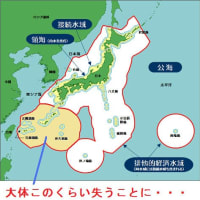
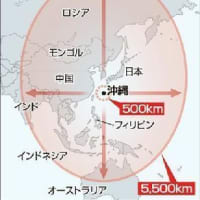
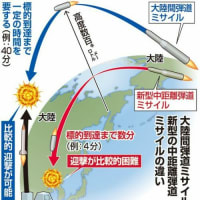
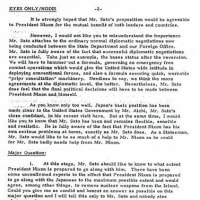
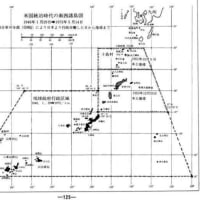
※コメント投稿者のブログIDはブログ作成者のみに通知されます